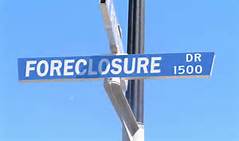How to Report a Foreclosed Rental House on Your Taxes
USINF0 | 2013-11-01 13:32

If your rental house is foreclosed on, the IRS views it as a sale. This requires you to report the gain or loss you incur on your tax return. However, the foreclosure increases the complexity of the transaction for tax reporting purposes since you must consider other factors, such as whether you are still responsible for any remaining mortgage debt after the bank takes possession of the rental house.
Step 1 - Calculate the tax basis in your rental house
The tax basis of your rental house is important because it represents your total costs in the home that is necessary to calculate your taxable gain or loss. Essentially, it includes the price you pay for the rental house plus the cost of the permanent improvements you make to it, such as increasing the square footage or building a garage on the property.
Step 2 - Calculate the amount you realize on the foreclosure
In a normal sale transaction, the amount you realize is just another name for the sales price. However, in a foreclosure, the amount depends on whether you are responsible for the remaining mortgage debt or not. If you aren’t, then the amount you realize is equal to the remaining mortgage balance that exists when the bank forecloses. But if you are responsible for paying the remaining balance, then the amount you realize is equal to the fair market value of the house when it’s foreclosed on.
In addition, if the bank cancels your debt, meaning you no longer need to pay it back, then any amount in excess of the fair market value of the house is part of your ordinary taxable income. This ordinary income is separate from the gain or loss you calculate on the foreclosure of the home.
Step 3 - Calculate your gain or loss
Once you determine the amount you realize on the foreclosure, you simply subtract your tax basis from that amount to arrive at your gain or loss. And if you’ve owned the rental house for more than one year, all losses are ordinary, meaning it is fully deductible from the other income you report on your personal tax return. However, if it results in a gain, then the IRS treats it as a long-term capital gain, which imposes much lower tax rates than those on your ordinary income.
Step 4 - Report the transaction to the IRS
The IRS requires you to report the foreclosure and the resulting gain or loss on a Form 4797. If the foreclosure results in a long-term capital gain, then you also need to include the amount on a Schedule D attachment to your personal tax return.
However, if you incur a loss, Form 4797 by itself is sufficient. Additionally, you must report any cancelled debt that is taxable as ordinary income on your Form 1040. Generally, the foreclosing bank will send you a 1099-C shortly after the close of the tax year to report the precise amount you need to report and pay tax on.
Share this page